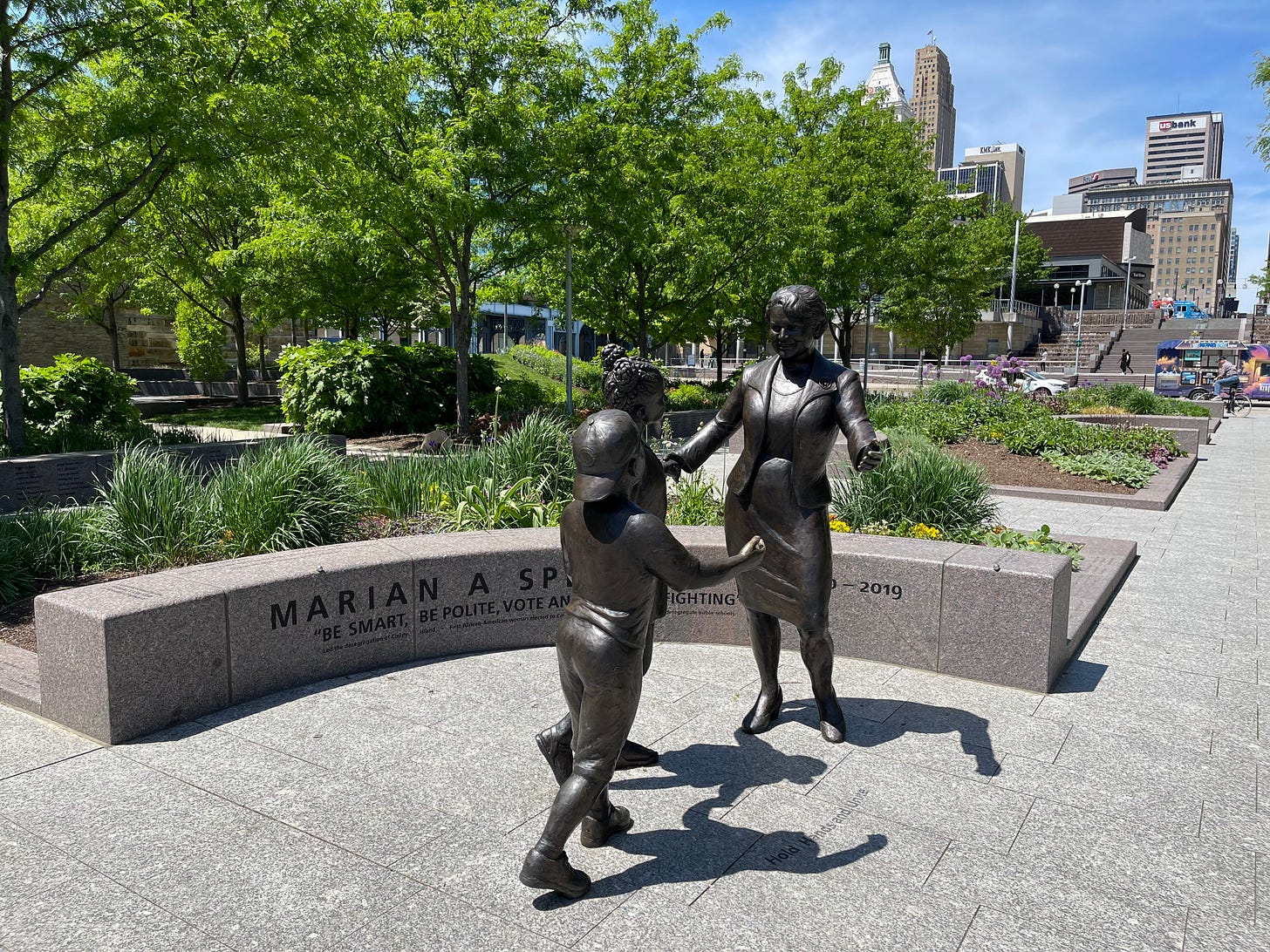This past week I helped my mom with a Juneteenth project she’s been working on for her community. The main source I consulted was the Juneteenth Digital Toolkit available through the National Museum of African American History and Culture. For my post this week, I wanted to synthesize what I’ve read about the significance of Juneteenth and share some ways I’m commemorating it this year.
Juneteenth’s origins can be traced to June 19, 1865, when in the wake of the Civil War, Union troops arrived in Galveston, Texas, to enforce the emancipation of over 250,000 persons still enslaved in the state. Juneteenth celebrates the anniversary of this proclamation in Texas, and over the past 160 years, these celebrations have spread throughout the nation. While historically Juneteenth has mainly been observed in Black communities, it was recognized as a federal holiday in 2021.
The roots of Juneteenth are in the Civil War and the emancipation of enslaved African Americans in Texas, but the day has come to encompass so much more about freedom and equality in the United States.
Here are five things to reflect upon on Juneteenth:
The unique journey to freedom of over 4,000,000 enslaved people during the Civil War and the courage of approximately 180,000 men who fought for the Union in the United States Colored Troops to ensure liberty for all.
How the promise of “freedom and liberty for all” that Americans celebrate on July 4th didn’t apply to enslaved people during the first century of our country’s existence. For more on this, I recommend reading Frederick Douglass’s speech “What to the Slave is the Fourth of July,” which he originally delivered on July 5, 1852. Here are excerpts of that speech read by his descendants:
How the struggle for freedom and equality for Black Americans continues beyond the Civil War through Reconstruction, Jim Crow segregation, the Civil Rights Movement of the 50s and 60s, and to today.
The key role that African Americans, both enslaved and free, have played in the formation of the nation, even though their contributions haven’t always been fairly compensated, recognized, or valued.
Identify people in your city or town who have worked toward freedom and liberty for all.
Local Heroes
For my mom’s community Juneteenth project, we wanted to focus on the achievements of some people local to Cincinnati. I asked my sister who she would highlight, and she recommended Marian Spencer (1920-2019). Spencer graduated from the University of Cincinnati in 1942. In 1952, as the mother of two young children, she led a successful campaign to desegregate Coney Island, an amusement park in Cincinnati, after her family was denied entry. Through her career, she also worked to desegregate Cincinnati’s public schools and to protect voting rights. She held several leadership roles including Chapter President of the NAACP in Cincinnati (1980-1982), the first African American woman elected to Cincinnati’s city council (1983), and Vice Mayor of the city. A street in Cincinnati near the National Underground Railroad Freedom Center, which she co-founded, is named after her, and her commitment to youth and education is reflected in a statue dedicated to her in Cincinnati’s Smale Park.

If I were in Cincinnati, my Juneteenth plans would likely involve visiting this statue of Marian Spencer and the National Underground Railroad Freedom Center museum.
Since I’m in Western Massachusetts, I’m instead going to visit a statue of Sojourner Truth and the David Ruggles Center to learn about the community of abolitionists that lived in Florence, Massachusetts, in the decades before the Civil War.
This past Saturday, I also attended a Juneteenth gathering in Amherst organized by Ancestral Bridges. I had a chance to check out their new museum space, which honors the Black and indigenous history of the area, including members of the 5th Massachusetts Colored Volunteer Calvary who served in Texas enforcing emancipation after the Civil War.
I came across a lot of great information about Juneteenth on the National Museum of African American History and Culture website. This quote, from an article titled “Who Celebrates Juneteenth” hit home for me the importance of the holiday:
“Juneteenth should be important for everyone. It's not just celebrating Black freedom. It's celebrating how important Black people have been to the formation of the United States. How Black celebrations of freedom are a reminder of how contingent freedom is for everyone. If we aren't free no one else is free.” -Angela Tate, former Curator of African American Women's History





https://open.substack.com/pub/poetpastor/p/we-have-survived-before?r=5gejob&utm_medium=ios
I learned a lot! Thank you for this.